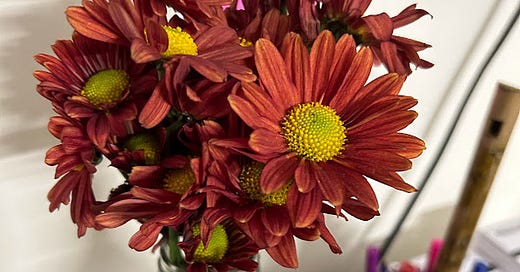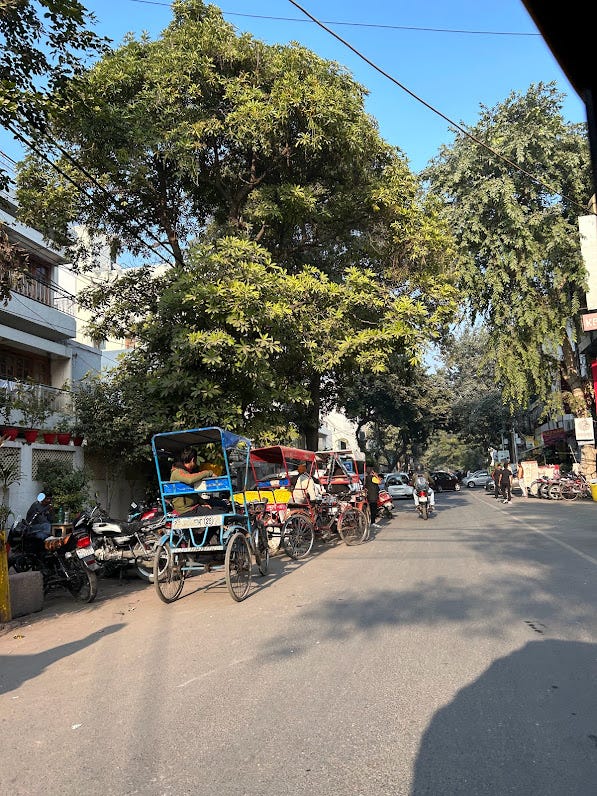#Scurf137: Ali Sethi and Delhi winters
Listening to his songs during Delhi's severe late December winters warms the cockles of my heart
Somehow, somewhere out of the blue, early this winter Ali Sethi’s music re-entered the narrow bylanes of my very slightly musical life. In whatever few minutes I got to myself alone, I listened to one new (to me) Ali Sethi song every day. It started with Gulon Mein Rang Bhare. (It always starts with Gulon Mein Rang Bhare).
Then came Ranjish Hi Sahi and soon, others followed.
While listening to Sethi, all I wanted to do was take off the first layer making up my life. I wanted to probe at the raw, bubbling wound that sat at my heart unblinking, unafraid and beautiful. Yet I proceeded by heaving that door shut and stuffing face with yet another pineapple pastry.
Something magical transpired when I chanced upon a complete version of Dil Jalane Ki Baat rendered so painfully by Sethi.
The songs jumps out. Because of its pain. Because of the truth it shows and makes us accept in its wake. Because of its attempt at accuracy.
After December 20, as the Delhi winter drew up to a crescendo, the song became a blanket for my dreary, near full (and yet always empty) noons. When I played it on my speakers the gloom outside couldn’t find me. It flittered, petering away at the edges.
Listening to Dil Jalane Ki Baat I was farther off, tucked into a time, a memory, a pause of its own making.
Often while listening to the song a thought would take home in me: Someone I didn’t know, somewhere far away was also listening to this song, losing themselves in it, just like me. And even if we might never meet each other or know our respective faces, in that moment we both existed on that plane and recognised the song’s shamanic capacities.
While listening to Sethi’s honey soaked, jilted voice croon alongside the harmonium made me think of how just a few years ago, when I had probably heard this song for the first time, I had no idea what these words would come to mean. Maybe then I was in a far away city, removed by miles from my current self. A patina of innocence clouding my former self as I brought myself to this song ever so gingerly. Then, I had no way to know that the song would come to envelope the last week of 2022 for me. Take a new meaning, form. There was no way for me to prepare for it.
I didn’t know my limit. The song was both a anumaan (guess) and a pramaan (evidence).
It is late into this rest and recharge week, and the Delhi winter is closing in on the city, on me, on the song. Seven degrees at 9am, then six the next morning, and so it was going.
Five degrees. No degrees. None of them.
This is also when the song started to assume a new, poignant role in my day to day. A place of comfort, of meditation, of hiding, perhaps, from this harsh weather. As the winter droned, trying to describe what I felt became an even more fraught prospect than it was before. The winter was amplifying a high-grade loneliness that was now combing itself neatly into my psyche.
Wading through these intense waters, all of a sudden alone, newer than before Dil Jalaane Ki Baat gave me the courage to go beyond the mutterings that this kind of winter makes happen.
The air changed outside. The sun started hiding more and more behind the thick air and the eventual clouds. Reduced to a diffused glow in the sky, the sun was now mocking my attempts at life. I realised that this weather, this new me required more than just the usual tropes of feeling warm, feeling life, feeling almost about anything. It asked me to acquire a new form of emotional rewiring.
Perhaps this was what Dil Jalaane Ki Baat, and Ali Sethi’s songs by extension were making possible for me.
Each time I collapsed into myself, the wind rising off the peepal tree outside my window and sneaking in from underneath the door, a memory of Sethi’s voice was enough to bring a semblance of warm. His songs carried me safely these last few days, especially as the winter tried to trap my coattails.
December 29 in Delhi: Over two weeks when it’s acceptable to look like a layered cake hurriedly put together, our tousled selves walking around bedraggled for days. My thermals are out and each pair is worn at least five time before I muster the courage to set up my semi-automatic washing machine. Thermal socks. Mom’s hand-knit sweaters, and winter shoes inside the house. Red and yellow mittens from Dalhousie. Anything less just doesn’t cut it.
During this desperation, Sethi’s songs serve as a background lament. They are lamenting about every agent in society. They lament the civilised, organised people. They lament their hypocrisy, that allows them to not love, not show, not feel. They lament how we have now come to masquerade emotional lack with phoney conviviality.
Every day I try to spend one hour in the neighbourhood park walking, listening to Sethi’s murmurations inside my headphones. The news channels are screaming around everyone that Delhi winters get harsher with each passing decade, but this year’s winter was delayed. December didn’t start off with the wind chill. But now its here affecting everyone, but some more than the rest.
All us Delhiites have now become characters in our own novels, preparing our mulled wines, sleeping with three layers, going underground, showering, not showering, all of this just so as to keep the blood pulsing.
Sethi’s songs may come across as a mere keening about lost love, but on repeated listens something deeper, stronger emerges through the mist. There is a romanticism in the song that could come across as revolution in some phoney version of philosophy. There is no ambiguity, but also not much clarity.
No specific thought or idea. A singular song.
Delhi’s winter and Ali Sethi’s songs running like two parallel lines that never meet or perhaps they do, at infinity.
Sethi’s songs come to serve as a discourse on all spheres of the (love) lives we live, often superimposed with our own cultural existence. In this, it becomes a fodder for introspection for everyone who lives the life of a human who loves or knows how to love.
Loving any form, any being.
What I am trying to aim for here, by way of these words, is really something very ridiculous, incongruous. Empty words turning to dust, that is what all songs are anyway. Somewhere along that journey from mote to dust, Sethi’s songs give me the hope to find my own vertical of existence, especially during this harsh Delhi winter.
I hope more of us locate that zeal for self-exploration no matter what the axis.
A December Delhi Ali Sethi playlist (not prospective):
Thanks for reading. This is a public essay on Scurf. If you enjoyed this, and/or you’d like access to the coming soon, weekly subscriber-only essays and discussion threads, maybe consider subscribing.







